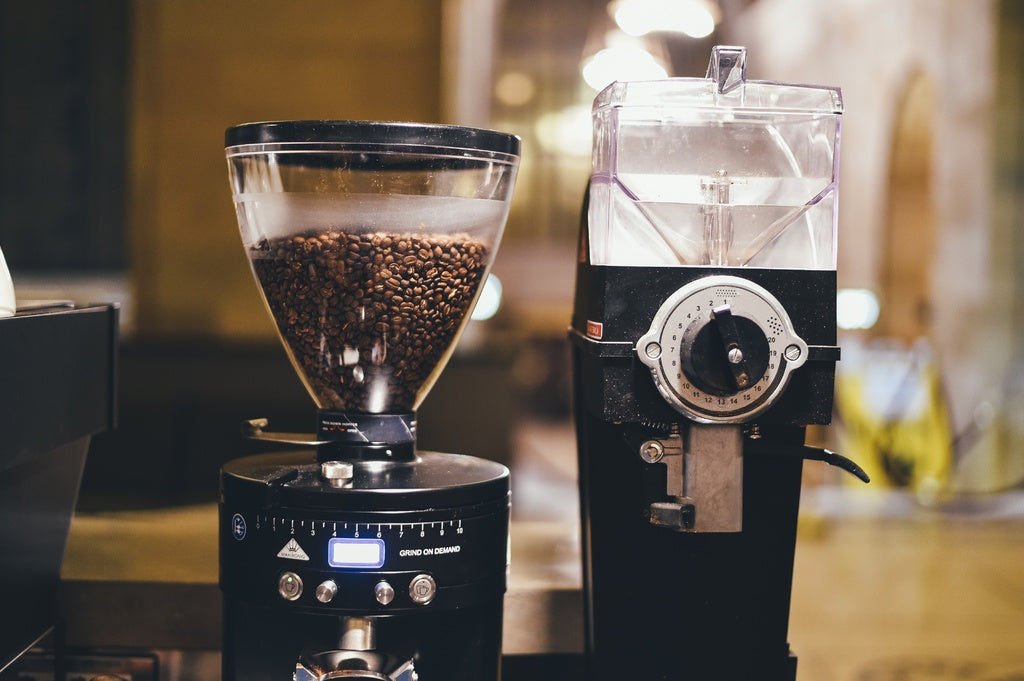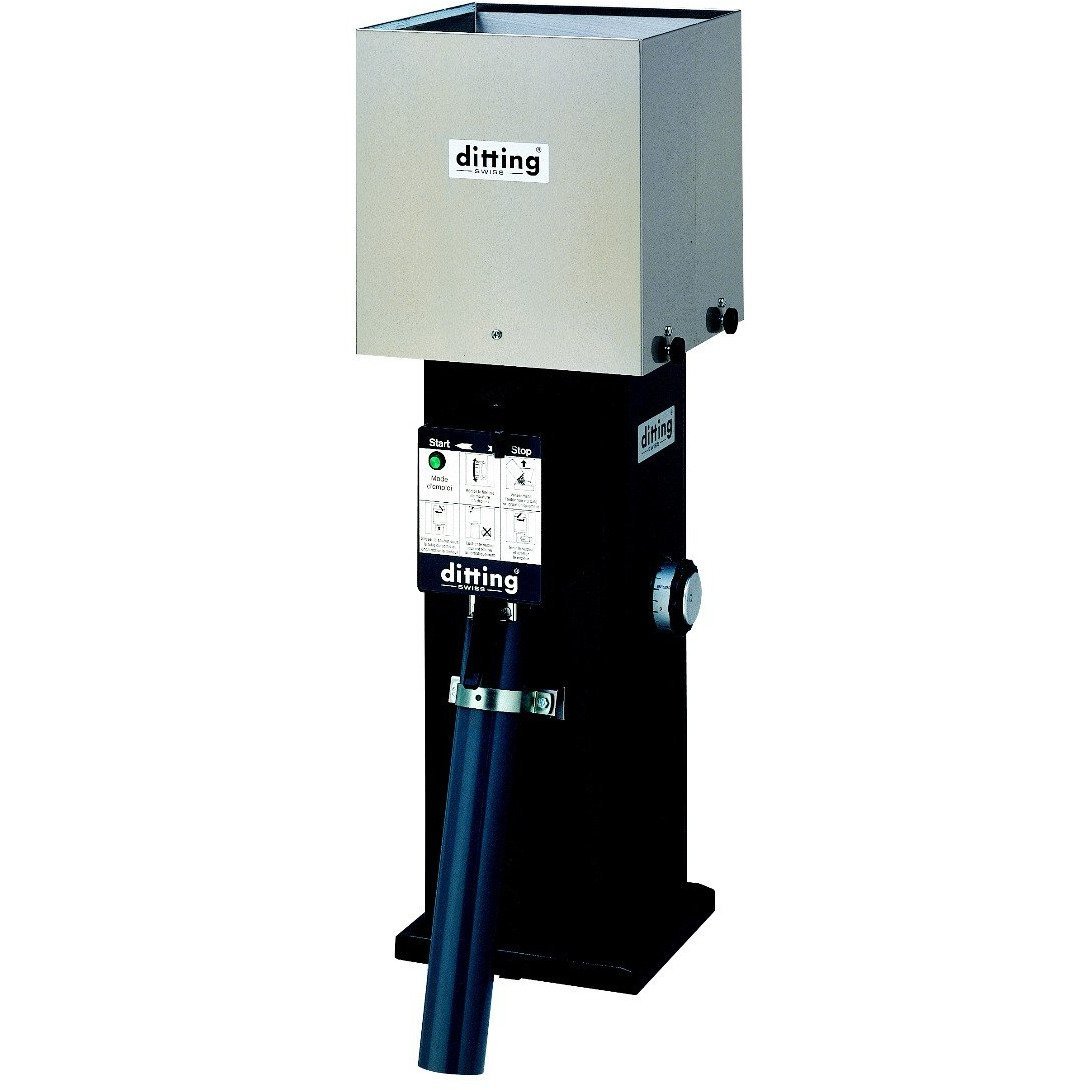Industrial Coffee Grinder: Pros, Disadvantages, and Attributes to Evaluate
Industrial Coffee Grinder: Pros, Disadvantages, and Attributes to Evaluate
Blog Article
Industrial Coffee Mill Overview: Increase Performance and High Quality
In the competitive landscape of coffee production, selecting the appropriate industrial coffee grinder plays an essential duty in improving both performance and product quality. Understanding the nuances of various mill kinds and essential features-- such as customizable work settings and robust building-- can dramatically influence the final taste account of the coffee.
Recognizing Mill Kinds
When picking an industrial coffee grinder, understanding the various types offered is vital for optimizing both flavor removal and operational effectiveness. Both main types of grinders are blade mills and burr mills. Blade mills make use of sharp blades that cut coffee beans right into irregular sizes, leading to uneven extraction and potentially undesirable flavors. While blade mills are frequently more budget friendly and suitable for small procedures, they are generally not recommended for industrial use.

Inevitably, selecting the best sort of mill is essential to keeping high quality and effectiveness in coffee production, making it necessary for companies to purchase high-grade burr grinders for optimal outcomes.
Key Functions to Take Into Consideration
Picking a commercial coffee mill calls for mindful consideration of several crucial features that can dramatically influence both performance and the total coffee experience. One of the primary aspects to evaluate is the grinding system. Burr mills are normally preferred over blade mills, as they offer a consistent work size, which is essential for optimal removal and taste.
One more essential function is the mill's ability. A versatile grinder with numerous setups allows you to tailor the grind size to various developing techniques, improving the coffee's flavor account.
The construction material likewise contributes in sturdiness and upkeep. Stainless steel parts usually use durability and are much easier to cleanse, which is necessary for maintaining hygiene requirements. Review the grinder's noise degree, especially in a busy café or production atmosphere, where too much sound can be disruptive. Purchasing a mill that balances these functions can substantially enhance both functional efficiency and the top quality of the coffee offered.
Optimizing Grinding Process
To achieve the very best results in coffee preparation, maximizing the grinding procedure is essential. The grind dimension dramatically influences removal, flavor, and general top quality of the brewed coffee. Various developing approaches call for certain work dimensions; for instance, coffee demands a fine grind, while French press demands a crude structure. Comprehending the connection between work dimension and developing approach is the very first step in optimization.


Additionally, monitoring the grinding rate can enhance the procedure. Slower grinding usually creates much less warmth, protecting fragile flavors and aromas. Alternatively, quicker grinding might create too much warm, adversely affecting the coffee's quality.
Upkeep and Care Tips
Appropriate upkeep and care of commercial coffee grinders are necessary for making certain optimum efficiency and durability. Normal cleansing is the foundation of maintenance; residue buildup can affect taste and grinding performance. It is suggested to clean up the grinder after each usage, wiping down the outside and removing any kind of coffee premises from the burrs.
Furthermore, examine the grinding burrs for wear and tear. Plain burrs can endanger work consistency, so they need to be changed as needed. Industrial Coffee Grinder. Occasionally adjusting the grinder is additionally critical, as this keeps the desired work dimension for various developing methods
Lubrication of moving parts ought to be performed according to the producer's specifications, as this minimizes friction and prolongs the life of the devices. It is necessary to utilize food-grade lubricating substances to guarantee safety and security and conformity with health and wellness policies.
Lastly, keep the grinder in a completely dry and secure setting to stop rust and corrosion. By sticking to these maintenance and care ideas, operators can improve the efficiency of their industrial coffee grinders while making sure go to these guys top quality output and expanded functional life.
Roi Evaluation
Evaluating the return on financial investment (ROI) for industrial coffee mills is critical for services seeking to optimize their coffee production capabilities. An extensive ROI analysis aids figure out the monetary stability of buying premium mills, permitting services to consider the preliminary costs versus prospective gains.
Evaluate the purchase rate of the mill, including installation and any required alterations to existing framework. High-performance grinders usually lead to reduced grinding time and boosted throughput, which can considerably enhance productivity.
Furthermore, take into consideration the effect on product top quality. Industrial Coffee Grinder. Superior mills produce a more consistent work size, which can boost taste accounts and customer contentment, inevitably driving sales. By boosting the high quality of the final product, businesses can warrant higher pricing, causing boosted revenue
Final Thought
In summary, an industrial coffee grinder plays a pivotal role in enhancing both effectiveness and item high quality within coffee production. By picking top notch burr mills equipped with crucial functions such as flexible grind setups and sturdy building, companies can make certain optimal flavor removal. Normal upkeep anonymous is crucial for sustaining mill performance and optimizing consumer satisfaction. Inevitably, the tactical investment in a reputable grinder adds significantly to improved earnings and competitiveness in the coffee sector.
In the competitive landscape of coffee production, choosing the appropriate industrial coffee mill plays a pivotal role in improving both performance and product high quality. The two main kinds of grinders are blade mills and burr grinders. Within the burr grinder group, there are flat burr grinders and cone-shaped burr mills, each with its advantages. Burr grinders are normally liked over blade mills, as they moved here give a regular work size, which is vital for ideal removal and taste.
In summary, a commercial coffee mill plays a crucial duty in enhancing both effectiveness and product high quality within coffee manufacturing.
Report this page